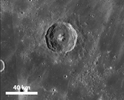grumbleguts
User name to post ratio checks out
Parked my car under a tree. In the morning the windscreen was filthy. The wipers did nothing, so I tried to scrape it off with the edge of a plastic Spotlight members discount card. I could only get 20% off.Guts not only playing, but also the pre game entertainment!









